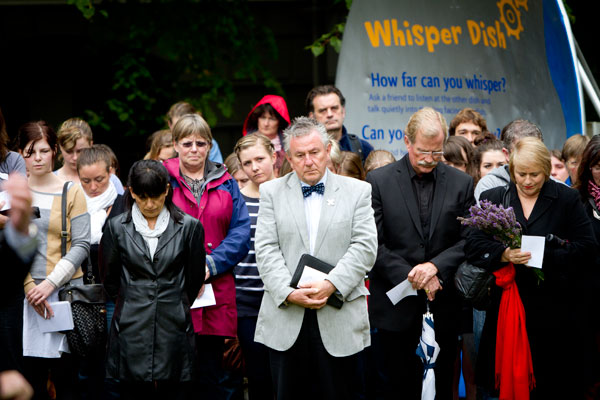Dunedin Remembers Christchurch Quake
Inappropriately flippant subheading undermines serious tone of article
The sombre and misty Dunedin day appropriately reflected the mood of many present. The service began with a greeting in Te Reo by Huata Holmes, followed by a speech from Dunedin Mayor Dave Cull. Cull spoke of the importance of remembering those who were, and continue to be, affected by that “ghastly day.” He said that the devastating and deadly events that panned out have had a lasting impact on communities in Christchurch and in Dunedin. “Our hearts go out to you. Our thoughts go out to you.”
University Chaplain Greg Hughson remarked that the service gave Dunedin families and the University a further opportunity to show that they continue to care and support one another one year on from such a tragic event.
Christchurch resident Jane Clutha represented those who were personally affected by the earthquake. She extended her thanks to the Dunedin community for its initiative in sending help to Christchurch. She wished to emphasize the help OUSA has provided, which has largely gone unnoticed by the media.
Two minutes of silence was observed at 12.51pm, the time the earthquake struck, and the service then closed with an emotional rendition of Amazing Grace.
Paul Gourlie, an “earthquake refugee” who attended the memorial and who was a member of OUSA’s executive in his university days, also extended his thanks to OUSA and the student population. “Students have this bad reputation, but students, including Dunedin students, were the first to get stuck in and help out after the quakes.”
With 200-plus volunteers, OUSA packed over 17,000 lunches in the days following the quake and extended countless services to victims through its “Christchurch Embassy”. OUSA facilitated the move that many Christchurch students undertook after the quake, and helped them easily integrate into student life in Dunedin.
OUSA President Logan Edgar advised any students still struggling with the impact of the Christchurch Earthquakes to “head to the OUSA Student Support Centre and they’ll help you out.”








